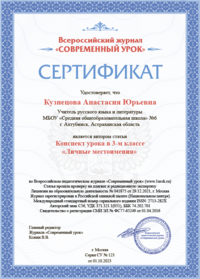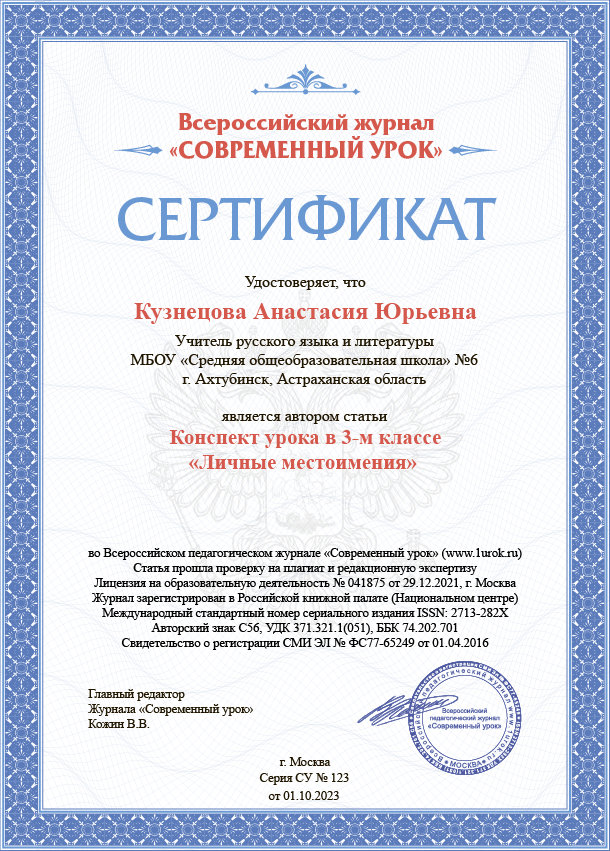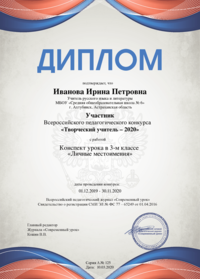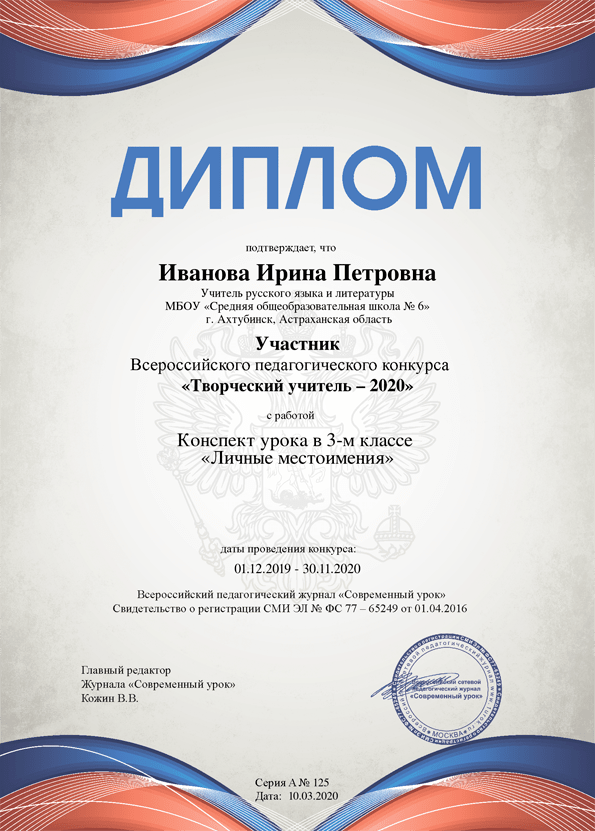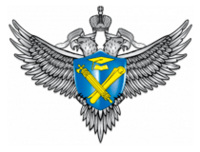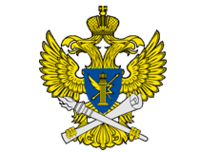Конспект урока на тему: «Подростковые проблемы. Служба доверия» (10-й класс)
Автор: Ветренко Ирина Евгеньевна
Организация: ГБОУ ЛНР ССШ №9 им. А. Стаханова
Населенный пункт: г.Стаханов
Тема: Подростковые проблемы. Служба доверия. Составление диалогов.
Цели урока:
1.Обучающая:
- пополнение и расширение словарного запаса учащихся;
- совершенствование компетенций чтения, аудирования с пониманием основного содержания текста и говорения по теме «Подростковые проблемы»; умения строить свое речевое высказывание;
- расширение кругозора учащихся.
2.Развивающая:
-развитие навыков диалогической и монологической речи учащихся;
- развитие умения анализировать и обобщать знания;
-отработка умений ведения диалога-обмена мнениями;
-развитие логического мышления, скорости мышления, коммуникативных умений и применение их на практике.
3.Воспитательная:
- воспитание умения слушать друг друга;
- воспитание толерантности, умения принимать точку зрения собеседника; формировать чувство ответственности и взаимопомощи при работе в паре;
-воспитание личностных качеств ответственности, самостоятельности;
- воспитание у учащихся культурных ценностей;
- повышение интереса к знанию языка.
Планируемые результаты:
Личностные:
- формирование устойчивой учебно-познавательной мотивации учения, навыков переноса знаний в новую ситуацию;
- формирование коммуникативной компетентности в общении и сотрудничестве со сверстниками;
- формирование навыков самоанализа и самоконтроля;
- формирование осознанного, уважительного и доброжелательного отношения к мнению одноклассников;
- формирование готовности и способности вести диалог;
- формирование правильного отношения к вредным привычкам и трудностям подросткового возраста;
- развитие навыков коллективной учебной деятельности, умения работать в паре, установление дружеских взаимоотношений в коллективе, основанных на взаимопомощи и взаимной поддержке;
- воспитание ответственного отношения к учению, готовности и способности к саморазвитию и самообразованию, осознание возможностей самореализации средствами английского языка.
Метапредметные:
Коммуникативные
- адекватное использование речевых средств для решения различных коммуникативных задач;
- ведение диалога этикетного характера в ситуации бытового общения;
- чтение текста с целью поиска конкретной информации;
- развитие коммуникативной компетенции.
Регулятивные
- развитие мотивации и интереса к познавательной деятельности;
- умение самостоятельно ставить цели, планировать пути их достижения, выбирать наиболее эффективные способы решения учебных и познавательных задач;
- умение оценивать правильность решения учебной задачи;вносить необходимые коррективы в действие после его завершения, оценки и учета характера ошибок.
Познавательные
- выделение и фиксирование необходимой информации в тексте;
- осознанно строить свое высказывание в соответствии с поставленной коммуникативной задачей;
- умение пользоваться логическими действиями сравнения, анализа, обобщения;
- овладение различными формами познавательной и личностной рефлексии;
- развитие коммуникативных умений общения и сотрудничества со сверстниками (работа в парах);
- формирование навыка использования личного опыта для аргументации;
- формирование критического отношения к действительности, умения анализировать и давать оценку поступкам и событиям, коллективно находить пути решения проблемы;
Предметные:
- развитие навыков чтения и аудирования; диалогической и монологической речи учащихся;
- развитие коммуникативных умений в говорении по теме «Проблемы подростков»;
- расширение словарного состава по теме.
Оборудование: карточки с заданиями, проектор, УМК "Spotlight 10", презентация к уроку, раздаточный дидактический материал, интерактивная доска.
Ход урока
- Организационный момент.
T: Good morning, pupils. Sit down, please! I’m glad to see you. How are you? Are you ready for the lesson? Henry Ford said:
“To get together is the beginning;
To stay together is progress;
To work together is success.”
T: So I hope we’ll work successfully today.
- Определение темы урока.
T: Look at the screen. Who can you see in the picture? (картинка подростков)
T: How do we call children who are 13-19 years old? (teenagers)
T: What are teenagers like? Remember adjectives which can describe them. Each word should start with the letters given on the screen. Don’t forget to use the phrases expressing your own opinion. Start your answer like this: I think… /To my mind… /In my opinion… From my point of view…/There’s no doubt…/It seems to me…/It goes without saying…/It’s obvious that…/It is reasonable to think… teens are talented.
T – talented
E – energetic
E – elegant
N – nice
A – active
G – generous
E – enthusiastic
R – realistic
S – smart
T: Excellent job!!! Well, who are we going to talk about?
T: To point our theme I want to show you the video. Look at the screen and try to understand what we will talk about.
T: Well, what are we going to talk about? Discuss in pairs. Think it over within 15 seconds.
T: Could you tell me what the theme of our lesson is?
P: We’re going to speak about teenagers’ life and their problems.
T: Yes, you’re right. We are going to work with the spidergram. The 1st numbers of each pair, take cards number 1 and write the theme of our lesson in the centre of it.
What What
Problems of
Teenagers
Who Where
- Целеполагание.
T: What are the aims at our today’s lesson. Use the words on the screen.
- Основная часть урока.
- Актуализация знаний (Brainstorming/Мозговой штурм).
T: Look at cards number 1 again and find the word “What”. What are the problems that teenagers may face? Work in pairs. Your task is to write down as many words that are connected with our theme as possible. You have 1 minute to do this task.
T: Now, present your work. One member of each pair will read all the words, while other pupils write down the words they don't have on their papers.
T: Thank you for your answers. These words are our vocabulary and they will help you during the whole lesson.
T: Today you will work with a “Self assessment Sheet” as well. Find it, please . You will mark each type of your activity there. The total grade will depend on your involvement into the class activities. Write down your name there. Find line 1. Write 5 points if you have more than 5 words in your list. 4 points if you have 4-5 words. 3 points if you have less than 4 words.
b) Расширение лексических навыков.
Введение нового лексического материала
T: So, what is the biggest problem among teenagers in our Republic? What is the biggest problem of British teens? You have 15 seconds to think. And now could you tell what the main problem of British teens is?
T: To find out the answer, open the books on page 22. Look at exercise 1 and read the dictionary entry.
Well, what is the biggest problem of British teenagers?
T: Before working with the text, let’s learn some new words. Look at the screen. Listen and repeat them. Now, read English-Russian-English.
apply обращаться (за работой)
laugh at смеяться над
bully издеваться
employer работодатель
be made redundant быть сокращенным (о работе)
suspect подозревать
tomboy девочка-сорванец
give up сдаваться
helpline телефон доверия
hurt обиженный, оскорбленный
responsibility обязанность
silence молчание
upset расстроенный
accept принимать
education образование
tease дразнить
placement agency агентство по трудоустройству
reluctant неохотный
Закрепление новых лексических единиц
T: Take cards 2. Match the words. Write your answers into the table.
a b c d e f g h i j k l m
a) apply (v) 1. обращаться (за работой)
b) bully (v) 2. обиженный, оскорбленный
c) upset (adj) 3. подозревать
d) accept (v) 4. издеваться
e) responsibility (n) 5. cдаваться
f) counselling service (n) 6. агентство по трудоустройству
g) suspect (v) 7. консультационная служба
h) give up (v) 8. расстроенный
i) tomboy (n) 9. быть сокращенным (о работе)
j) placement agency (n) 10. дразнить
k) hurt (adj) 11. принимать
l) be made redundant (v) 12. обязанность
m) tease (v) 13. девочка-сорванец
Key: a-1;b-4;c-8; d-11; e-12; f- 7; g- 3; h-5; i-13;j-6; k-2; l- 9;m-10.
T: Look at the screen and check your answers. (Учащиеся проверяют ответы самостоятельно с опорой на экран.)
T: Take the list of self assessment. Find line 2. Write 5 points if you have 12-13 correct answers; 4 points if you have 11-10 and 3 points if you have 9-6 correct answers.
Динамическая пауза (Релаксация).
T: My friends, I think you’re tired. Listen to me attentively and do some exercises. Be attentive!
Дыхательная гимнастика.
«Big Breath in! » «Big Breath out! »
Зарядка для глаз.
T: Now, you will watch the video and do some animated eye exercises.
c) Работа с текстом.
T: Listen to the text and read it. Then, you’ll answer the questions.
T: Answer the questions. Who is discriminating against Paolo/Meg/Julie?
T: Where can teens face their problems? Discuss in pairs and write your answers in card 1 under the box “Where”. Add your own ideas. You’ve got 1 minute.
T: Are you ready? Let’s discuss. If you have more than 4 words, put 3 points into line 4. 3 words - 2 points. 2 words – 1 point.
T: Who can help you to solve these problems? Discuss in pairs and write your answers in card 1 under the box “Who”.
T: What words did you write? If you have more than 4 words, put 3 points into line 4. 3 words - 2 points. 2 words – 1 point.
T: Look at the second part of the text. Read it and then write down into your spidergram, what advice was given in the text. Add your own ideas. You’ve got 1 minute. If you have more than 4 phrases, put 3 points into line 4. 3 phrases - 2 points. 2 phrases – 1 point.
T: Give advice to Paolo/Meg/Julie. Remember expressions of giving advice. Find cards with them.
Asking for advice
- What do you think I should do?
- What should I do?
- What do you suggest?
- What do you advise me to do?
- If you were me what would you do?
- What ought I to do?
- Do you think that I should…?
Giving advice
- - If I were you I would/wouldn’t….
- - If I were in your shoes/position I would…
- - You should/could…
- - Why don’t you….?
- - Have you thought about….?
- - Have you tried…?
- You really should/ought to…
- How about/What about + noun/-ing form - - The best thing you can do is to…
- - I strongly advise you…
Expressing agreement
- I agree with you 100 percent.
- That's so true.
- That's for sure.
- You're absolutely right.
- Absolutely.
- That's exactly how I feel.
- Exactly.
No doubt about it. Expressing disagreement
- I don't think so.
- I'm afraid I disagree.
- I totally disagree.
- That's not always true.
- That's not always the case.
- No, I'm not so sure about that.
d) Discussion. Making dialogues. (Role play)
T: Can you be psychologists? Imagine that one of you is a person who works at a helpline. Another person is a teenager who is calling you. Make dialogues using the ideas from your spidergrams and the example given in card 3. Change the underlined expressions.
A: Hello. My name’s… I’m … years old. Is this….?
B: Yes. How can I help you?
A: I’ve put on weight and my classmates tease me. ( state the problem) What should I do?( ask for advice)
B: Why don’t you….? (give advice)
A: No, I'm not so sure about that. (disagree)
B: Have you thought about….? (give another advice)
A: You're absolutely right. (agree) Thank you very much. Goodbye.
B: Goodbye.
e) Acting out the dialogues.
T: Act out your dialogues.
V. Домашнее задание.
T: Your home task is to make notes about one of teens’ problems using the plan. Then, use your notes to give a two-minute talk.
1. State the problem.
2. Say why it is the most important problem (2-3 reasons).
3. Say who can help you (friends, parents, teachers, etc?)
4. Give advice how to solve the problem.
VI. Подведение итогов.
T: Now, let’s make a conclusion. Look at the list of aims on the board. Finish the sentence: I have learnt…
VII. Рефлексия 3 – 2 – 1
T: Now name 3 the most important problems in the life of teenagers; 2 ways of solving one of the problems; 1person who can help you?
Обучающиеся говорят, какие три проблемы являются для них важными; два решения одной из проблем; человек, который может помочь решить проблему.
VIII. Выставление оценок.
T: Count your points. Take your self assessment lists and day books with you. Come to me and I’ll put you marks for the lesson.

 БЕСПЛАТНЫЕ семинары
БЕСПЛАТНЫЕ семинары